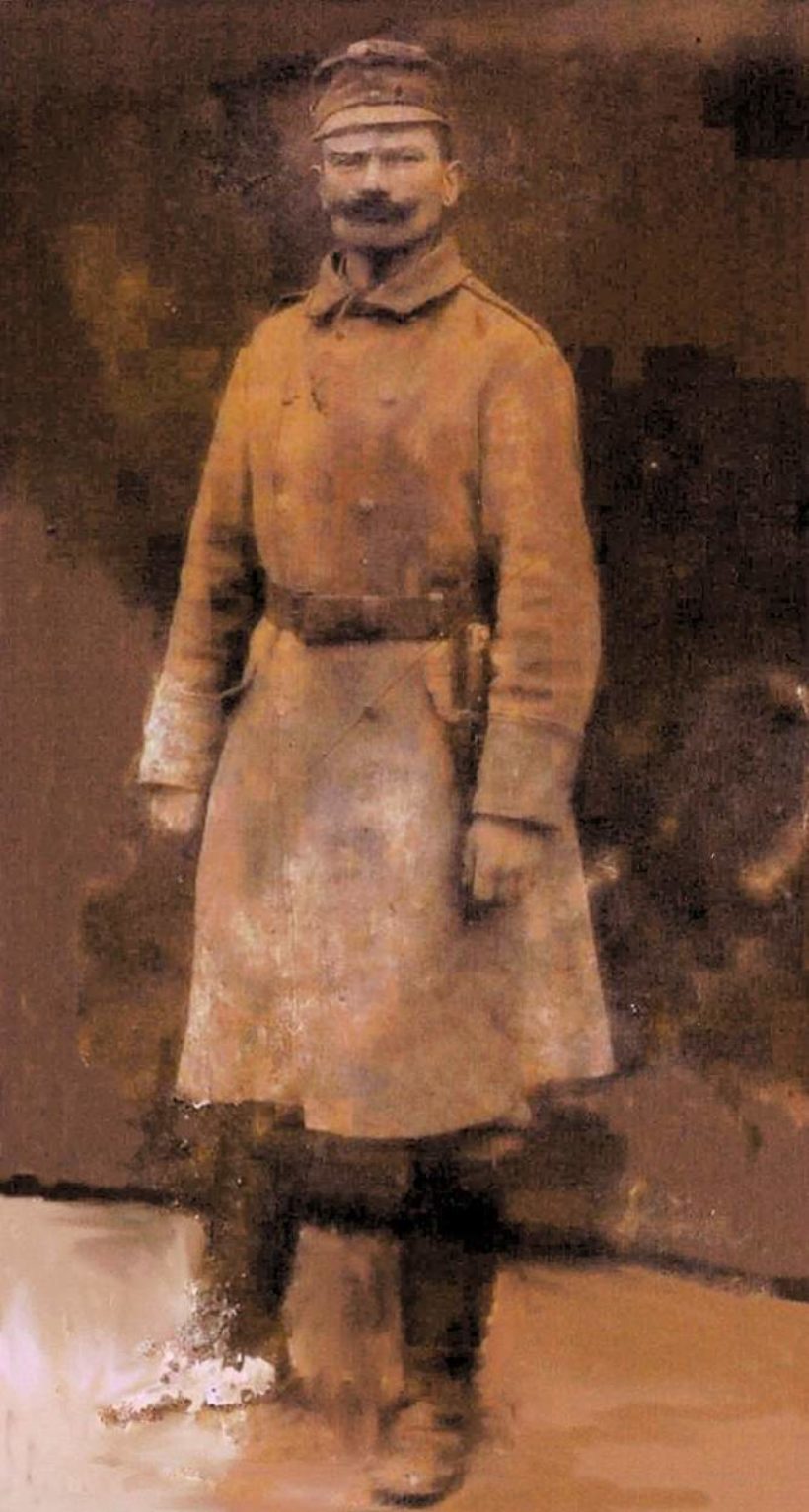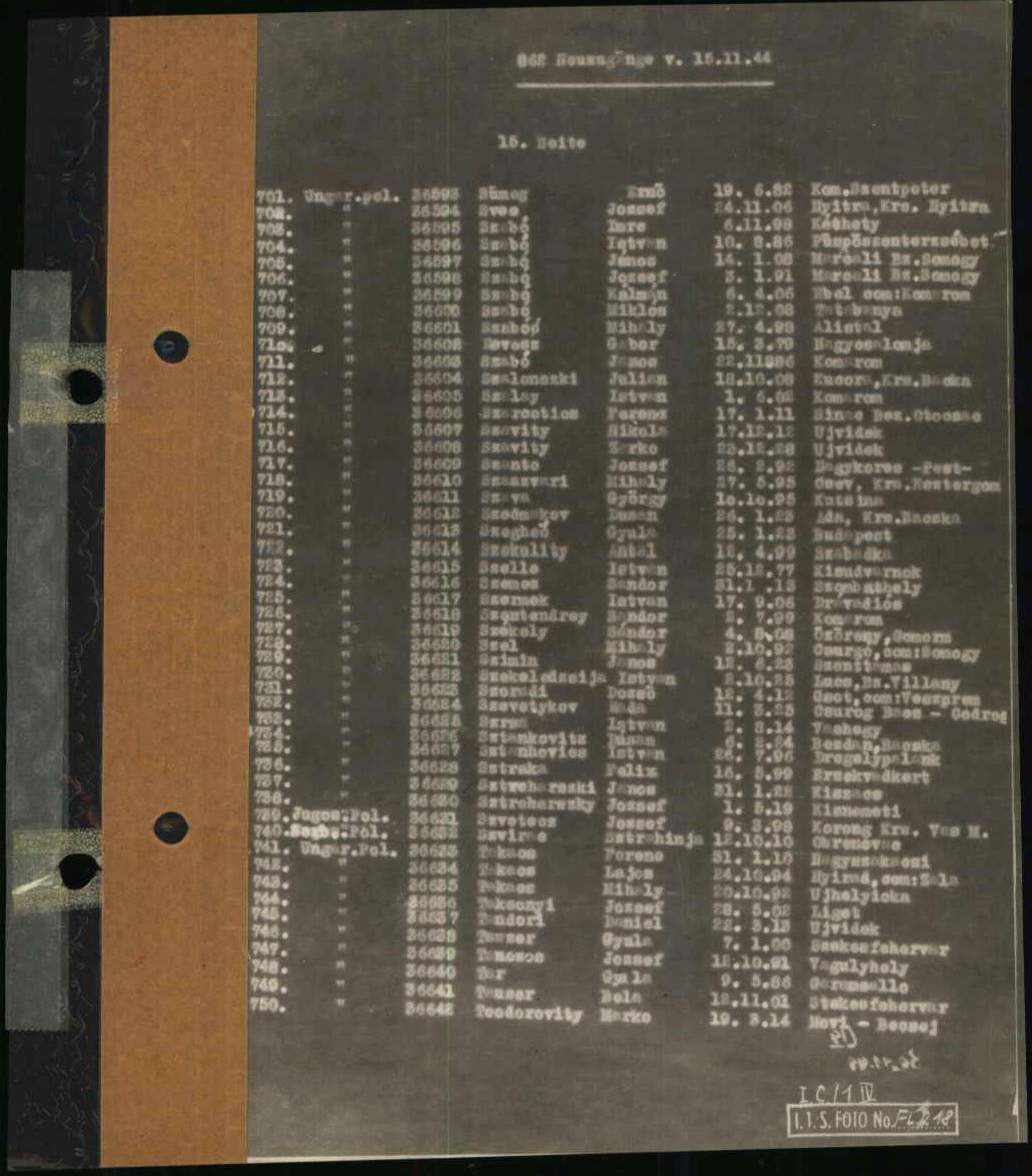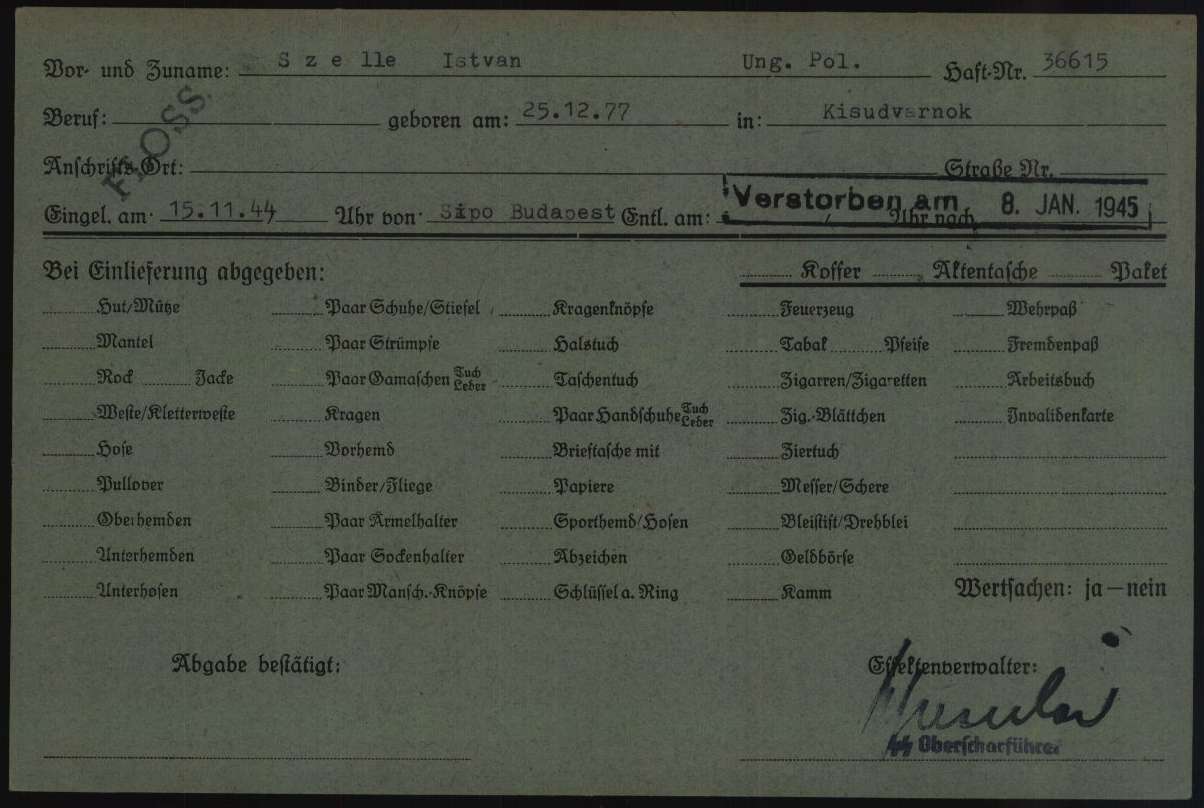From Orphan to Communist Martyr - István Szelle
(1877, Kisudvarnok -1945, Flossenbürg)
István Szelle was born in 1877 in Kisudvarnok, in the territory of the Kingdom of Hungary (today: Malé Dvorníky, Slovakia), which belonged to the Austro-Hungarian Monarchy. An orphaned boy, he supported himself as a child by working for local farmers. He married at the age of 25 and had five children. He was a road worker and a seasonal agricultural labourer. He was wounded at the front during the First World War. After his discharge, he was granted a disabled veteran's trade licence.

István Szelle as a soldier in the First World War (Flossenbürg Memorial)
After his home village was annexed to Czechoslovakia after the World War, Szelle became one of the founders of the Czechoslovak Communist Party in Kisudvarnok. They won the local elections and Szelle was elected to the leadership of the village. He had wells dug and introduced electricity to the village.
In the autumn of 1938, the southern part of Upper Hungary (Southern Slovakia) was re-annexed to Hungary upon pressure from Nazi Germany and Fascist Italy. Thus Szelle became a Hungarian citizen again. As a communist, he was kept under surveillance by the Hungarian police. In 1944, after the German occupation of the country, he was arrested. In November 1944, he was deported to the Flossenbürg concentration camp by the German security police (Sicherheitspolizei) in Budapest in a transport of 862 people. Most of his fellow inmates were Hungarian political prisoners, while others were incarcerated as Jews, Slovaks and Yugoslavs.

The list of names of the Hungarian transport arriving at Flossenbürg on 15 November 1944: among the prisoners, István Szelle with the number 36615 (Arolsen Archives ITS)
Szelle spent his 67th birthday in Flossenbürg. The concentration camp was flooded with transports evacuated by the Nazis from other camps to escape the approaching front. A year earlier there were 3,300 people in the camp – this number doubled now and then quadrupled in early 1945. Szele could not long endure the starvation, overcrowding and mistreatment. He died in the main camp on 8 January 1945.

An identity card of Szelle from Flossenbürg, stamped "Verstorben am 8. Jan. 1945", i.e. “died on 8 January 1945” (Arolsen Archives ITS)






